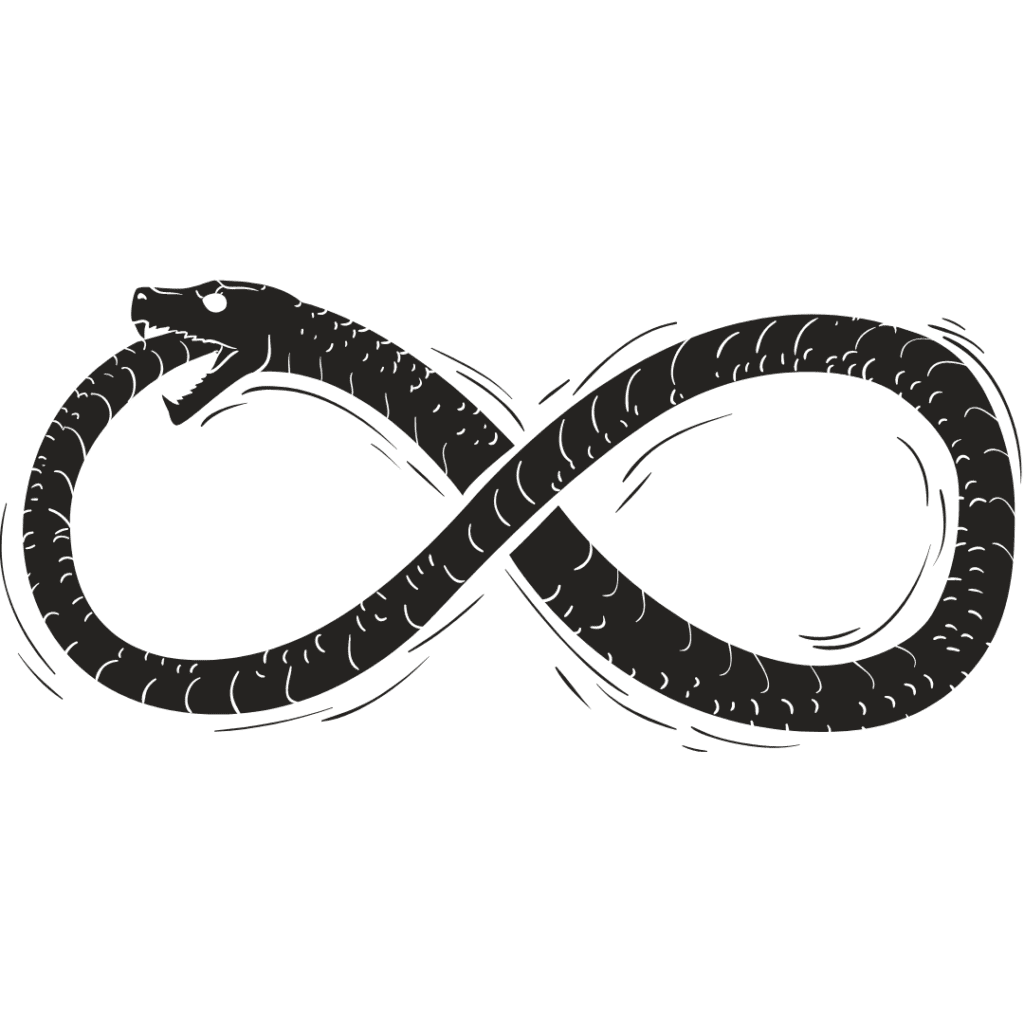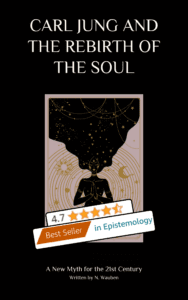Table of Contents
Introduction: What is the Eternal Recurrence?
If you have seen the first season of True Detective, then you might remember a scene during which one of the characters, Rust Cohle, is arguing that time is a flat circle. He explains that time does not move forward linearly, but in a circle, and that everything you have ever done, you will do again and again and again. This idea is one of the most important, but also one of the most complicated, ideas of Friedrich Nietzsche. He called it the eternal recurrence or the eternal return.
The eternal recurrence is a rather scary idea as well, Friedrich Nietzsche himself even indicated in his book Thus Spoke Zarathustra. that this idea scared him: “Thus did I speak, and always more softly; for I was afraid of mine own thoughts.” (p.155)
Rust Cohle, the character in True Detective, focused mainly on the negative connotations of the eternal recurrence, victims of crimes would, according to him, continue to be a victim until the end of time; if such a thing can even exist if time were indeed a circle. I believe that the idea of the eternal occurrence can also be interpreted in a more positive way: I believe that it can be an extremely powerful motivating force.
What is the eternal recurrence, and how can it be motivating?
The Eternal Recurrence
In Thus Spoke Zarathustra the prophet Zarathustra is discussing the idea of the eternal recurrence with a dwarf. They are standing at a gate above which is written ‘this moment’, and from this gate, two lanes are moving in opposite directions: “Two roads come together here; these hath no one yet gone to the end of. This long lane backwards, it continueth for an eternity. And that long lane forward – that is another eternity.” (p. 154)
Zarathustra asks the dwarf what would happen if one would follow one of these roads until the end. Would they continue to move in opposite directions, or will they eventually connect with eachother? The dwarf responds by saying that they will eventually connect: “’Everything straight lieth,’ murmured the dwarf, contemptuously. ‘all truth is crooked: time itself is a circle.’” (p. 154)
Naturally ‘Everything straight lieth’ is not an extremely convincing argument in favour of the eternal recurrence, however, I believe that Friedrich Nietzsche did not want us to think about the eternal recurrence in a scientific way, instead I believe that he wanted us to look at the philosophical consequences of such an argument. What would it mean for our lives if we will repeat them eternally? What would we change? “And this slow spider which creepeth in the moonlight, and this moonlight itself, and thou and I in this gateway whispering together, whispering of eternal things – must we not all have already existed?” (p. 155)

The Eternal Yea!
One of the most important implications of the eternal recurrence is that one cannot say no to life, for one will continue to live for all of eternity. Friedricht Nietzsche wrote that: “Innocence is the child, and forgetfulness, a new beginning, a game, a self-rolling wheel, a first movement, a holy Yea. Aye, for the game of creating, my brethren, there it needs a holy Yea unto life; its own will willeth now the spirit; his own world winneth the world’s outcast.” (p. 22)
As you may have read in previous posts on this blog, Nietzsche disliked religion and the state because they oppose the eternal yea of creation and individuality. Instead, they promote an eternal ‘no’ of conformity and equality. If one were to relive one’s life over and over again, then why not say yes to life and define for yourself how you want to live your live?
The Holocaust survivor Victor Frankl made a similar argument in his book Man’s Search For Meaning: “Live as if you were living for the second time and had acted as wrongly the first time as you are about to act now.” (p. 151) In this sense, as I mentioned before, the idea of the eternal recurrence is not a scientific idea, but more of a guiding principle throughout one’s life.
For Nietzsche this meant that one must make certain choices in one’s life with the idea in mind that one will continue to make the same choices forever. This then also strongly resonates with some other important ideas of Nietzsche, such as defining your own idea of good and evil and finding your own way in life: “This – is now my way, Where is yours? Thus did I answer those who asked me ‘the way’. For the way – it doth not exist!” (p.190)
Fear and Courage
Another implication of the idea of the eternal recurrence is that one must rethink what one fears in life. Indifference and mediocrity, i.e., the life of the last man, is what must be feared, according to Nietzsche, not shame, guilt, or insecurity.
Thomas Carlyle in his book Sartor Resartus wrote: ‘What art thou afraid of? Wherefore, like a coward, dost thou for ever pip and whimper, and go cowering and trembling? Despicable biped! What is the sum-total of the worst that lies before thee? Death? Well, Death; and say the pangs of Tophet too, and all that the Devil and Man may, will, or can do against thee!.” (p. 129) According to Carlyle, however, death is not what one should fear but, particularly with the idea of the eternal recurrence in mind, ‘the eternal no’ is what one should fear the most: “Behold, thou art fatherless, outcast, and the Universe is mine (the Devil’s):’ to which my whole Me now made answer: ‘I am not thine, but Free, and forever hate thee!’” (p.129)
The Eternal Recurrence: Conclusions
Nicholas Davey wrote in the introduction of the copy of Thus Spoke Zarathustra that I have that: “The truly searching test set by the doctrine of the eternal recurrence is a stark one: confront the suffering of the moment and in creating a meaning for your being redeem both yourself and all that sustains you.” (Introduction, p. XXVIII)
I believe that this is exactly how we should see the idea of the eternal recurrence and that this is also how Friedrich Nietzsche wanted us to understand it: as a test. If we live our lives with the doctrine of the eternal recurrence in our minds, then we will probably be moving in the direction that Nietzsche wanted us to go.
We will most likely be moving away from the abyss of the last man and in the direction of the overman. In this sense, the idea of the eternal recurrence can be seen as an overarching principle of Friedrich Nietzsche’s ideas. At the same time, it can also be a very motivating doctrine, because true believers in this concept will do whatever it takes to create meaning: “Courage, however, is the best slayer, courage which attacketh; it slayeth even death itself, for it saith: ‘was that life? Well! Once more!’” (p.153)

